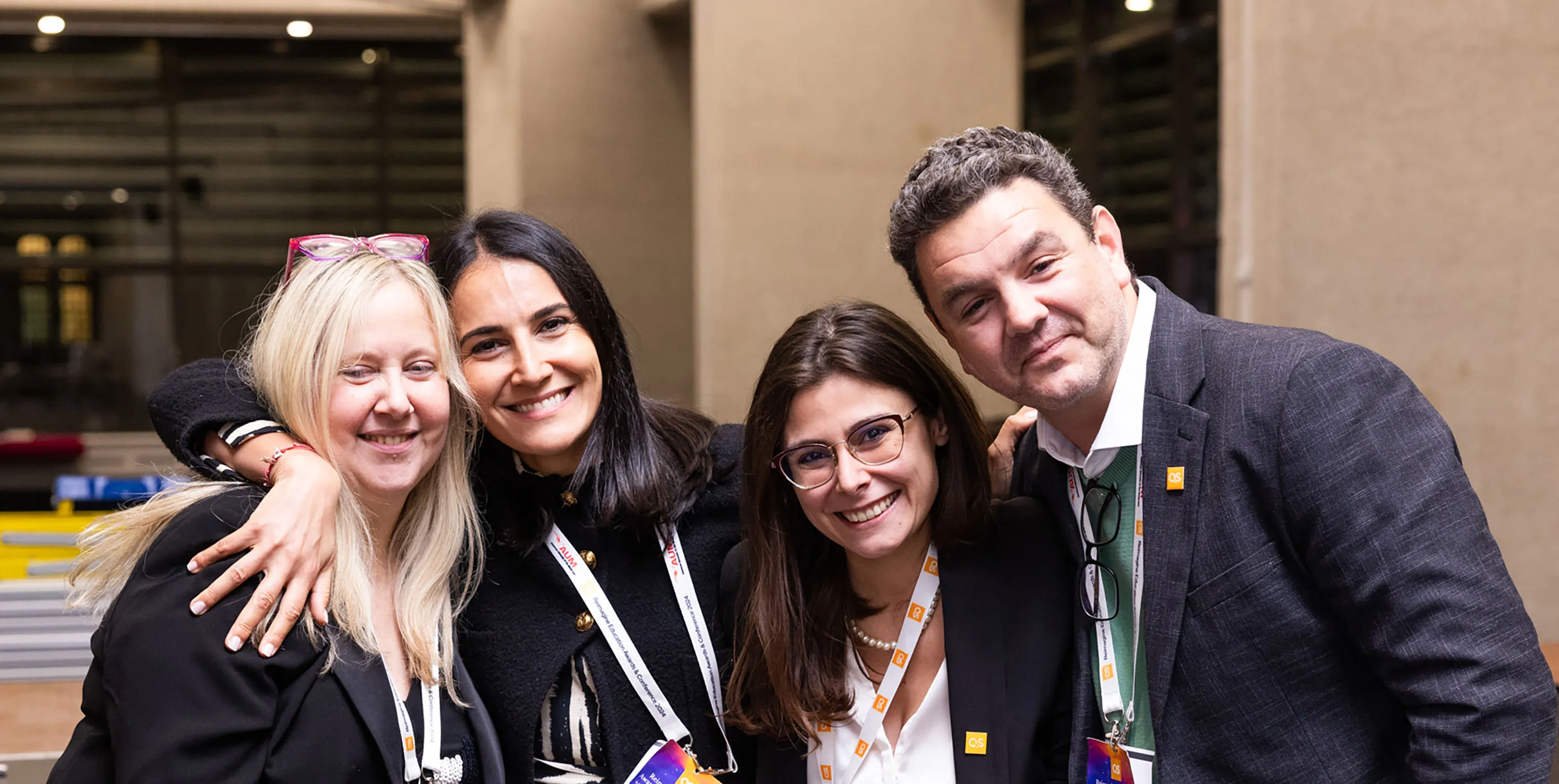The startup world is a fascinating place.
What begins as an idea has the potential to grow, with founders and founding teams creating tools, building platforms and scaling organisations that can make a big difference to the world around us. And while startups and entrepreneurship have existed for centuries, the modern startup ecosystem has evolved rapidly over the past few decades.
Once a staple of Silicon Valley, the startup world began to expand beyond these established tech hubs in the early 2010s, and as technology became more accessible globally, startup ecosystems began emerging worldwide in cities like London, Berlin, Bangalore, Shanghai and Sao Paolo. Opportunities in the space are growing - and higher education institutions have responded to the call, expanding incubators, funds and competitions, producing a growing wave of VC-backed founders.
Over the past decade, Europe’s ecosystem has scaled dramatically. According to the State of European Tech 2024 report, there are 35,000+ early-stage companies in Europe (EU + UK) - which has quadrupled from around 7.800 back in 2015, with over 3,400 growth-stage companies in the region - an eightfold increase in the same time period. Investment into Euopean tech has also levelled up significantly over the past decade, with venture funding in European tech having tripled since 2015. Some of the most exciting and groundbreaking startups call Europe home - and with many staying true to the European brand of impact-focused innovation and entrepreneurship, exciting times lie ahead for the European startup ecosystem, and the higher education institutions nurturing the founders of tomorrow.
The future of entrepreneurship
Business schools are investing in their students' startup ideas like never before.
Master’s and MBA programmes across the globe are increasingly providing support through incubators, faculty advisors and access to funding.
Startup competitions offer students invaluable opportunities to gain funding, receive mentorship and feedback from industry experts, network with peers and professionals, develop essential entrepreneurial skills and gain visibility and credibility for their ideas and ventures.
INNOVA Europe is one such competition doing just that. Founded in 2022 by EDHEC Business School, POLIMI Graduate School of Management and ESMT Berlin, INNOVA aims to promote entrepreneurship as a way of solving big world problems.
The competition aims to spark healthy competition between competing business schools, while also highlighting Europe’s brand of impact-focused innovation and entrepreneurship. 2025 marked the third annual edition of INNOVA Europe, with 10 leading business schools from across Europe, as well as a guest school from India competing to tackle a unique challenge: developing innovative and sustainable projects that address some of the world's most pressing challenges.
Tommaso Agasisti, Associate Dean for Institution & Public Administration, POLIMI Graduate School of Management; Co-founder of INNOVA Europe said: “When we launched INNOVA Europe three years ago, we envisioned a platform where academic excellence, entrepreneurial spirit and social impact could converge. “Seeing 10 of Europe’s top business schools and a growing community of international students come together to co-create solutions for a better society is a source of immense pride. INNOVA has become more than a competition - it’s a movement that empowers the next generation of changemakers to turn bold ideas into real-world impact.”
Nearly 120 student founders, alumni, professors and entrepreneurs were in attendance during the 3rd INNOVA Europe Grand Finale at ESMT Berlin. 45 entrepreneurs pitched 21 impact ventures to experienced judges in the impact entrepreneurship space - with the businesses proving to be as varied as the problems they hoped to solve. INNOVA has two categories for projects to compete in: the Young Hopes category for early-stage ideas; Rising Stars for startups already showing traction and market potential. Projects addressed challenges in environmental transition, empowerment and inclusion or health and wellbeing.
Hovanks, an adaptive mental health app led by CEO Kris Nadiryan from Ukraine’s Kyiv School of Economics won the €5,000 prize for Young Hopes. Kris said: “I’m originally from Ukraine, and despite what is going on, we are still creating and competing. These competitions play a vital role in helping us continue to create and grow our project. “INNOVA is so well organised, and we have felt supported every step of the journey.”
The grand winner of the Rising Stars category was AcouBatt from London Business School. The team, led by Arthur Fordham and Chris Haoxin Xu, walked away with €20,000 in prize money and a year of free incubation services at EDHEC, ESMT, or POLIMI. The start-up uses acoustic sensors and machine learning technology to “listen” to batteries, reducing scrap rates and enabling more sustainable large-scale production. Arthur Fordham and Chris Haoxin Xu from AcouBatt said: “The INNOVA competition is incredible - it’s very special, and we’re so proud of what we have achieved so far. Being part of this competition has given us the opportunity to branch into Europe, which is both exciting and transformative for our project. The prize money will allow us to finalise our product, strengthen and scale our software and accelerate our development in ways that would not have been possible otherwise.”
Europe’s competitive edge: sovereignty, data, and purpose
During her keynote address at INNOVA, Dr. Annika von Mutius said that innovation is more important than ever in Europe. She noted that Europe imports 80% of its tech, later arguing that the continent must reduce its reliance on imported technology and cultivate tech sovereignty if it is to thrive. Europe also sits on unique, high-quality datasets von Mutius added, which could underpin trustworthy, human-centric AI systems. Combine that with a strong policy focus on safety, privacy and fairness, and you get a platform for innovation that plays to Europe’s strengths rather than copying others.
The purpose and impact lens matters, too, especially to the founders of tomorrow. At INNOVA, projects addressed societal challenges like mental health, accessibility, ageing populations, clean energy and beyond - but this European focus on impact innovation goes beyond this competition. In October, the first-ever INNOVA Barometer will be released, serving as an annual measure of the commitment to responsible business practices in European startups, especially those in the early stages of development. For the inaugural barometer, researchers, including Juliette Magnient, Impact Startup Program Manager at EDHEC, surveyed 433 early-stage European startups, assessing startups’ level of commitment to responsible business practices, how they implement them and how they track their progress. The report revealed that 93% had implemented at least one responsible practice, but only about 28% were tracking their impact.
The barometer aims to help the European entrepreneurial ecosystem better understand startups’ priorities, motivations, challenges and national specificities when it comes to responsible business practices. It’s a first step toward understanding how European entrepreneurs are putting responsibility into action, and where gaps remain.
Universities catalysing startup growth
Although Silicon Valley is consistently ranked as the world's leading tech startup ecosystem, Europe is becoming increasingly competitive. According to the QS World Future Skills Index, countries that align higher education with employer demand in AI, digital and green capabilities are best positioned to convert this ecosystem growth into jobs and productivity.
It’s an exciting time in the sector, and there has never been a better time for students to take that leap of faith in their entrepreneurial journey. In response to ecosystem growth across the continent, European universities have doubled down on entrepreneurship, embedding venture building into teaching, mentorship, and market access.
PitchBook’s 2025 founder analyses highlight Europe’s momentum. On the master’s side, The University of Oxford (1,475 founders, 1,233 companies and $43bn of capital raised), University of Cambridge (1,380 founders, 1,147 companies and $44.3bn capital raised) and INSEAD (953 founders, 882 companies and $21.9bn raised) sit at the top of the graduates ranking by founders and capital raised. In the MBA cohort, INSEAD, London Business School (478 founders, 443 companies and $11.6bn), and IE University (255 founders, 226 companies and seen $5.8bn capital raised) lead on alumni-founded, VC-backed companies. Taken together, this is evidence that European programmes aren’t just teaching entrepreneurship—they’re producing founders and operators at scale.
Why universities are pivotal in the startup ecosystem
Business schools and universities have become the connective tissue between startup talent and the wider ecosystem. The most forward-looking institutions no longer treat entrepreneurship as a silo—they operationalise venture creation across the school.
As INNOVA Europe co-founder Tommaso Agasisti told QS: “We developed INNOVA to show students they can build on their ideas toward a better future for all. We put energy into a dialogue so that, while they study, they are already reflecting on how to prepare for that future.” In practice, this means credit-bearing incubators, Lean LaunchPad courses, and capstones tied to real customers that compress the journey from idea to MVP to pilot. It means capital pathways - student-run funds, sidecar vehicles, proof-of-concept grants, and warm introductions to angels and VCs - that bridge the seed-stage gap.
It also means cross-disciplinary teams that unite MBA and master’s students with engineers, designers, data scientists, and policy experts, forming stronger founding teams, faster. Perhaps most importantly, schools provide founder services that first-time entrepreneurs rarely have: clear IP and legal support, visa guidance, wellbeing coaching, and post-graduation accelerators. Together, these elements create the runway students need to launch durable, mission-driven companies - and ensure Europe’s next wave of startups is built as much on campus as in the market.









.jpeg)





.jpg)
.jpg)


.jpg)